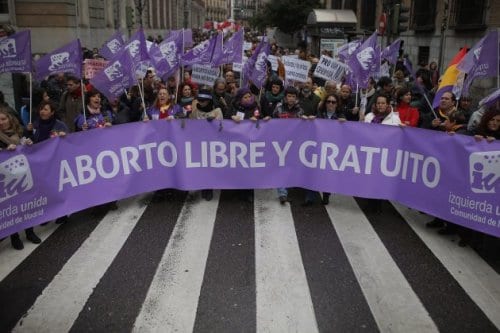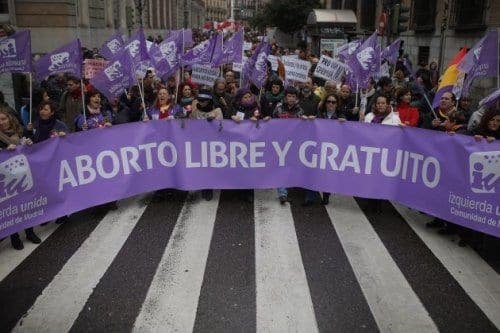
THIRTEEN years later, Spain’s Constitutional Court has finally rejected an appeal filed against the current abortion law by the conservative Popular Party.
The legislation covering terminations was overhauled by the Socialist Party government of Prime Minister Jose Luis Rodriguez Zapatero during his second term in office from 2008 to 2011.
Under the law, women can access terminations on demand during the first 14 weeks of pregnancy. In the case of severe abnormalities, the procedure is available up to 22 weeks.
The balance of power in the Constitutional Court has recently shifted from a majority of conservative magistrates to a majority of progressive ones. Yesterday, one of these judges presented a draft ruling on the appeal filed by the PP, which considered the new law to be unconstitutional when it was passed.
This ruling backed practically all of the law as it stands apart from one aspect involving informed consent. However, this proposal was rejected by the Court, and a different magistrate will now draft a new ruling that will fully back the current system.
As well as filing the appeal, under former prime minister Mariano Rajoy, the Popular Party tried to alter the law in 2013. The draft legislation was even stricter than that introduced in 1985, when abortions were decriminalised in cases of malformation, rape or mental or physical risks to the mother.
However, the proposal caused widespread outrage, in particular among women’s groups, and led to protests. As a result the plan was dropped and the only change made by the PP was to forbid 16- and 17-year-olds from accessing an abortion without consent from their parents.
This was then reversed in 2022 by the current government, which is a coalition of the Socialist Party and leftist Unidas Podemos, a reform that is pending final approval in parliament.
Asked today about the Constitutional Court’s rejection of his party’s appeal, the current PP leader Alberto Nuñez Feijoo said that he thought the current legislation was the ‘correct’ one and that it was in line with other European countries, Europa Press reported.
He complained, however, that the court had taken so long to reach a decision on the appeal, as it could ‘decontextualise’ the ‘feeling’ of society.
Read more:

